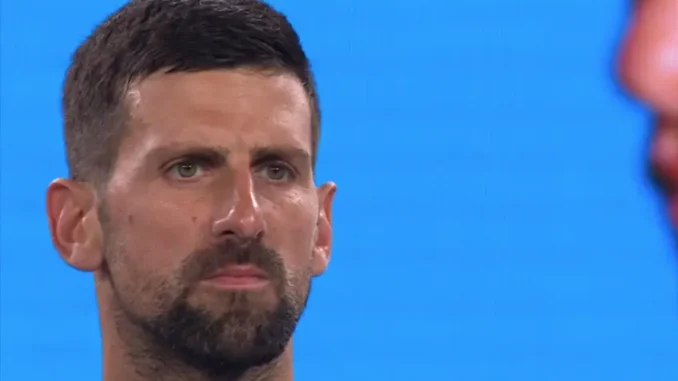
Rennae Stubbs, the former professional tennis player and renowned commentator, recently came to the defense of Novak Djokovic, one of the sport’s greatest players, while directing sharp criticism at tennis fans who have been less than supportive of the Serbian star. Her impassioned remarks have reignited debates about the treatment of Djokovic in the tennis community and beyond.
Djokovic, a 23-time Grand Slam champion, has often been a polarizing figure in the tennis world. Despite his extraordinary accomplishments and dedication to the sport, the Serbian player has frequently faced hostility from certain sections of fans, especially during high-stakes matches. Stubbs, never one to shy away from speaking her mind, took to social media to address what she perceives as an unfair bias against Djokovic.
Stubbs’ comments centered on the double standards in how Djokovic is treated compared to other tennis greats. She highlighted that despite his immense contributions to tennis, including his exceptional skills, philanthropic efforts, and role as a mentor for younger players, Djokovic often finds himself in the crosshairs of criticism. Stubbs argued that fans’ apparent unwillingness to embrace Djokovic wholeheartedly is not only unjust but also detrimental to the sport’s legacy.
In her fiery defense of Djokovic, Stubbs did not mince words. She pointed out the stark contrast between the reception Djokovic receives and the adulation bestowed upon his contemporaries, such as Roger Federer and Rafael Nadal. While Federer and Nadal are often regarded as the “golden boys” of tennis, Djokovic has been painted as the outsider, a narrative that Stubbs finds both troubling and unfair.
One of the key points Stubbs raised was the role of fans in shaping a player’s public image and confidence. She noted that players feed off the energy of the crowd, and the lack of support for Djokovic in certain venues can create an unbalanced playing field. Stubbs expressed her frustration at the apparent unwillingness of some fans to give Djokovic the respect he deserves, suggesting that such attitudes might stem from deep-seated biases or a resistance to change within the tennis community.
Another aspect Stubbs touched on was the broader cultural implications of Djokovic’s treatment. She argued that the lack of appreciation for Djokovic might be rooted in his background. Coming from Serbia, a country with a tumultuous political and economic history, Djokovic has had to work harder than most to carve out his place in the sport. Stubbs emphasized that his journey should be celebrated as a testament to perseverance and determination, not overlooked or dismissed.
Stubbs also directed her critique at fans who seem to relish in Djokovic’s rare defeats or missteps. She questioned why some individuals take pleasure in tearing down a player who has consistently proven himself to be among the best in the sport’s history. Her message was clear: celebrating the achievements of all players, regardless of personal preferences, is vital for maintaining the integrity and spirit of tennis.
The commentary from Stubbs has sparked a lively debate within the tennis community. While some fans and pundits agree with her perspective, others argue that fan preferences are subjective and cannot be dictated. However, Stubbs’ remarks have undeniably shed light on an issue that has lingered in the background for years: the unequal treatment of players based on factors beyond their control.
Djokovic himself has often acknowledged the mixed reception he receives. Though he rarely addresses the issue directly, his interactions with fans and the media suggest an awareness of the challenges he faces in winning universal admiration. Despite these hurdles, Djokovic has continued to let his racket do the talking, amassing a record-breaking number of titles and setting benchmarks that may remain unmatched for generations.
Stubbs’ defense of Djokovic is not just about one player; it is a call to action for fans to reconsider how they engage with athletes. She emphasized that sportsmanship is not limited to players on the court but extends to the spectators in the stands. Fans have a responsibility to uphold the values of fairness and respect, regardless of personal allegiances.
As the tennis season progresses, the conversation around Djokovic and his relationship with fans is unlikely to fade. Stubbs’ outspoken support has added a new layer to this ongoing narrative, encouraging deeper reflection on what it means to truly celebrate the sport and its players.
In the end, Stubbs’ defense of Djokovic is about more than just tennis. It is a reminder of the importance of recognizing excellence, challenging biases, and fostering an inclusive environment where all players, regardless of background or style, are given the respect they deserve. Whether or not her words will spark lasting change remains to be seen, but they have undoubtedly ignited a conversation that goes to the heart of what it means to be a true fan of the game.
Leave a Reply